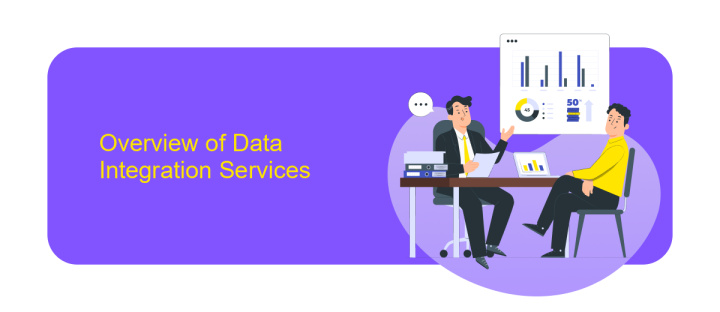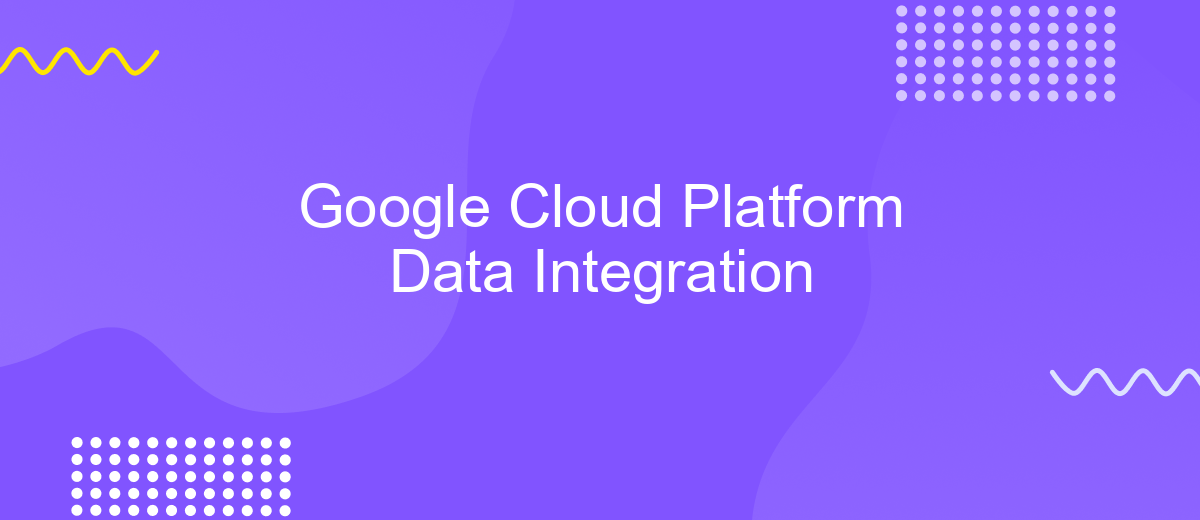Google Cloud Platform Data Integration
Google Cloud Platform (GCP) offers robust data integration solutions that enable businesses to seamlessly connect, manage, and analyze data from various sources. With tools like Cloud Dataflow, BigQuery, and Pub/Sub, GCP simplifies data workflows, enhances scalability, and ensures real-time data processing. This article explores the key features and benefits of GCP's data integration services for modern enterprises.
Introduction
Google Cloud Platform (GCP) offers a comprehensive suite of tools and services designed to facilitate seamless data integration across various environments. Whether you are dealing with on-premises data, multi-cloud setups, or hybrid architectures, GCP provides robust solutions to ensure your data flows smoothly and securely. By leveraging GCP's data integration capabilities, organizations can unlock valuable insights, enhance decision-making, and drive business growth.
- Scalable and flexible data pipelines
- Real-time data processing and analytics
- Seamless integration with third-party applications
- Advanced security and compliance features
- Comprehensive monitoring and management tools
In this article, we will explore the key components of GCP's data integration offerings, including Cloud Dataflow, Cloud Pub/Sub, and BigQuery. We will also discuss best practices for implementing these tools to maximize efficiency and reliability. Whether you are a data engineer, analyst, or IT manager, this guide will provide valuable insights to help you leverage GCP for your data integration needs.
Overview of Data Integration Services

Google Cloud Platform (GCP) offers a comprehensive suite of data integration services designed to streamline data workflows and enhance data accessibility. These services enable organizations to seamlessly connect disparate data sources, transform data into actionable insights, and ensure data consistency across various platforms. Key GCP tools like Cloud Dataflow, Cloud Pub/Sub, and Cloud Data Fusion facilitate real-time data processing, reliable messaging, and simplified data orchestration, respectively. By leveraging these tools, businesses can automate data pipelines, reduce manual intervention, and accelerate time-to-insight.
In addition to GCP's native tools, third-party services such as ApiX-Drive can further enhance data integration capabilities. ApiX-Drive provides a user-friendly interface for setting up automated workflows between multiple applications without requiring extensive coding knowledge. This service supports a wide range of integrations, allowing businesses to sync data effortlessly between GCP and other platforms. By combining GCP's robust infrastructure with ApiX-Drive's flexible integration solutions, organizations can achieve a more cohesive and efficient data ecosystem, ultimately driving better decision-making and operational efficiency.
Use Cases

Google Cloud Platform (GCP) provides a robust environment for data integration, allowing organizations to seamlessly connect, manage, and analyze their data. This capability is essential for businesses aiming to leverage data-driven insights to enhance their operations and make informed decisions.
- Data Migration: GCP enables smooth migration of data from on-premises systems to the cloud, ensuring minimal downtime and data integrity.
- Real-time Data Processing: With tools like Cloud Dataflow and Pub/Sub, GCP supports real-time data ingestion and processing, crucial for applications requiring immediate data analysis.
- Data Warehousing: BigQuery, GCP's fully-managed data warehouse, allows for scalable storage and rapid querying of large datasets, facilitating complex analytical workloads.
- Machine Learning Integration: GCP's AI and machine learning services, such as AI Platform and AutoML, integrate seamlessly with data sources, enabling predictive analytics and advanced data modeling.
- Multi-cloud and Hybrid Environments: GCP supports integration with other cloud providers and on-premises systems, offering flexibility and interoperability for diverse IT landscapes.
These use cases illustrate how Google Cloud Platform streamlines data integration processes, empowering organizations to harness the full potential of their data. By leveraging GCP's comprehensive suite of tools, businesses can achieve greater efficiency, scalability, and innovation in their data management strategies.
Benefits

Google Cloud Platform (GCP) offers a comprehensive suite of data integration tools that streamline the process of unifying data from multiple sources. These tools are designed to handle diverse data formats and provide seamless integration with other Google services, making it easier for businesses to manage and analyze their data effectively.
One of the key benefits of using GCP for data integration is its scalability. Whether you are a small startup or a large enterprise, GCP can handle your data integration needs with ease. The platform's robust infrastructure ensures that you can scale your operations without compromising on performance or reliability.
- Seamless integration with other Google services
- Scalable infrastructure to meet growing data needs
- Support for diverse data formats and sources
- High performance and reliability
- Advanced security features to protect your data
In addition to these benefits, GCP also offers advanced analytics and machine learning capabilities. By integrating your data on GCP, you can leverage these tools to gain deeper insights and drive better business decisions. Overall, GCP provides a powerful and flexible solution for all your data integration needs.
- Automate the work of an online store or landing
- Empower through integration
- Don't spend money on programmers and integrators
- Save time by automating routine tasks
Getting Started
To get started with Google Cloud Platform (GCP) Data Integration, you first need to set up a GCP account and create a new project. Once your project is ready, navigate to the "API & Services" section in the GCP Console to enable the necessary APIs for data integration, such as BigQuery, Cloud Storage, and Dataflow. These services will allow you to store, process, and analyze large datasets efficiently.
For a seamless integration experience, consider using ApiX-Drive, a powerful tool that simplifies the process of connecting various applications with GCP. With ApiX-Drive, you can automate data transfers between your cloud services and other business applications without writing a single line of code. Simply configure your data sources and destinations within the ApiX-Drive interface, and let the platform handle the rest. This will save you time and ensure that your data workflows are both reliable and scalable.
FAQ
What is Google Cloud Platform Data Integration?
What are the common services used for data integration on Google Cloud?
How can I automate data integration tasks on Google Cloud?
What are the benefits of integrating data on Google Cloud?
How do I ensure data security during integration on Google Cloud?
Apix-Drive is a universal tool that will quickly streamline any workflow, freeing you from routine and possible financial losses. Try ApiX-Drive in action and see how useful it is for you personally. In the meantime, when you are setting up connections between systems, think about where you are investing your free time, because now you will have much more of it.


